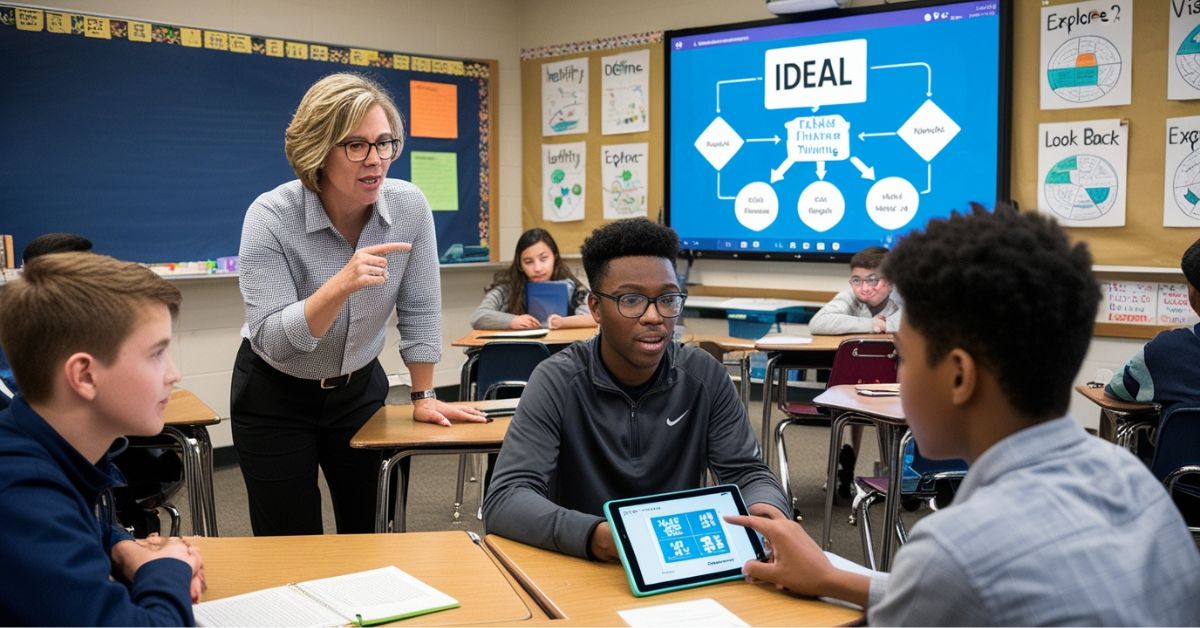Teachers as role models. He pays close attention to students’ academic development while placing equal emphasis on their personal development. Teachers have the ability to affect pupils’ attitudes, behaviors, and values. A teacher can motivate students to live meaningful lives.
Impact of Teachers on Students’ Lives
Teachers serve as role models for their students, having a significant impact on their life. They embody values, ethics, and attitudes that affect pupils’ character and behavior in addition to providing knowledge. Teachers serve as role models for empathy, patience, and respect, promoting a good and nurturing educational environment. Their enthusiasm for studying and dedication to their job motivate students to pursue their goals and desires.

Teachers as Beacons of Integrity
Teachers model integrity and honesty for their students, encouraging them to make ethical decisions in their lives. Teachers become beacons of inspiration by encouraging students to achievement, personal growth, and becoming responsible members of society through their guidance and support.
Teachers’ Multifaceted Role in the Classroom
A teacher’s function in the classroom is complex and crucial in molding students’ learning experiences and personal growth. They are educators, facilitators, and mentors who share their knowledge, skills, and principles with others. They foster a welcoming and inclusive learning atmosphere. They promote active involvement and critical thinking.
Adapting to Students’ Needs
Teachers adapt their teaching approaches to accommodate different learning styles, ensuring that all students succeed. Furthermore, teachers encourage and motivate students to achieve their greatest potential by instilling a love of learning and curiosity in them. They also assess and provide constructive criticism to students, guiding their progress. Finally, instructors play a critical role in developing well-rounded individuals who are prepared for future success and responsible citizenship.

Characteristics of Teachers as Role Models
Characteristic teachers serve as role models for telling the truth, carrying out tasks, earning and returning trust, respecting others, and living a moral life. A teacher communicates information, tradition, modern-day issues, and solutions to the pupils’ problems. In this chapter, we will consider various ways in which teachers can serve as role models.
Be Humble
- A humble teacher is capable of objectively analyzing his performance, whether in classroom management or otherwise. They should take the time to listen to the students. A humble teacher understands his need to learn and is willing to change his way of thinking.
Be Sympathetic
- It is difficult to teach with empathy. Sympathetic educators pay attention to their students. They are aware of their students’ personal and social conditions. They will have a grasp of the world’s complexities as well as the experiences of others. Empathy-based instruction will assist students in reducing anxiety and tension. It fosters a positive learning atmosphere.
Be Organized
- Organizational skills assist teachers in maintaining classroom order and optimizing learning opportunities for their students. A teacher should be prepared with effective teaching and assessment methods. It assists students in sitting in their right spot at the proper time.

Be Knowledgeable
- A great teacher is one who is extremely educated about the subject. Teachers who are knowledgeable in their field typically provide pupils with a solid practical basis. In class, they have greater communication abilities. Such abilities will allow pupils to interact more successfully with teachers.
Be Active in Extracurricular Activities
- When instructors participate in extracurricular activities, they have the capacity to positively impact students and form strong relationships with them. It assists students in expanding their social support networks and achieving positive outcomes.
A child’s life is constantly impacted by their teachers. A teacher is a dynamic force. So, each teacher should strive to set an example for their students.
Conclusion
Teachers function beyond their traditional role to model powerful examples which create student growth in academics and personal excellence. Through their example of humility alongside their empathy and organization skills along with their acquired knowledge teachers guide students toward becoming mature responsible individuals. Teachers impact their students beyond academic instruction because they teach important morals and cultivate student curiosity and support lifelong education. By displaying commitment to excellence and integrity teachers guide students along a path to reach their maximum potential while doing meaningful good for their community.
You may like to read:-
Curriculum Planning Made Easy: A Step-by-Step Guide for Teachers
- How to Dominate Your Online Business With 5 Proven Digital Marketing Strategies
- How to Cultivate Critical Thinking and Problem-Solving Skills in Classroom
- Top Proven Mental Health Strategies for Schools in 2025-26
- Time Management for Teachers: How to Plan, Prioritize, and Perform Better
- How Parental Involvement in Education Shapes a Child’s Growth and Success



